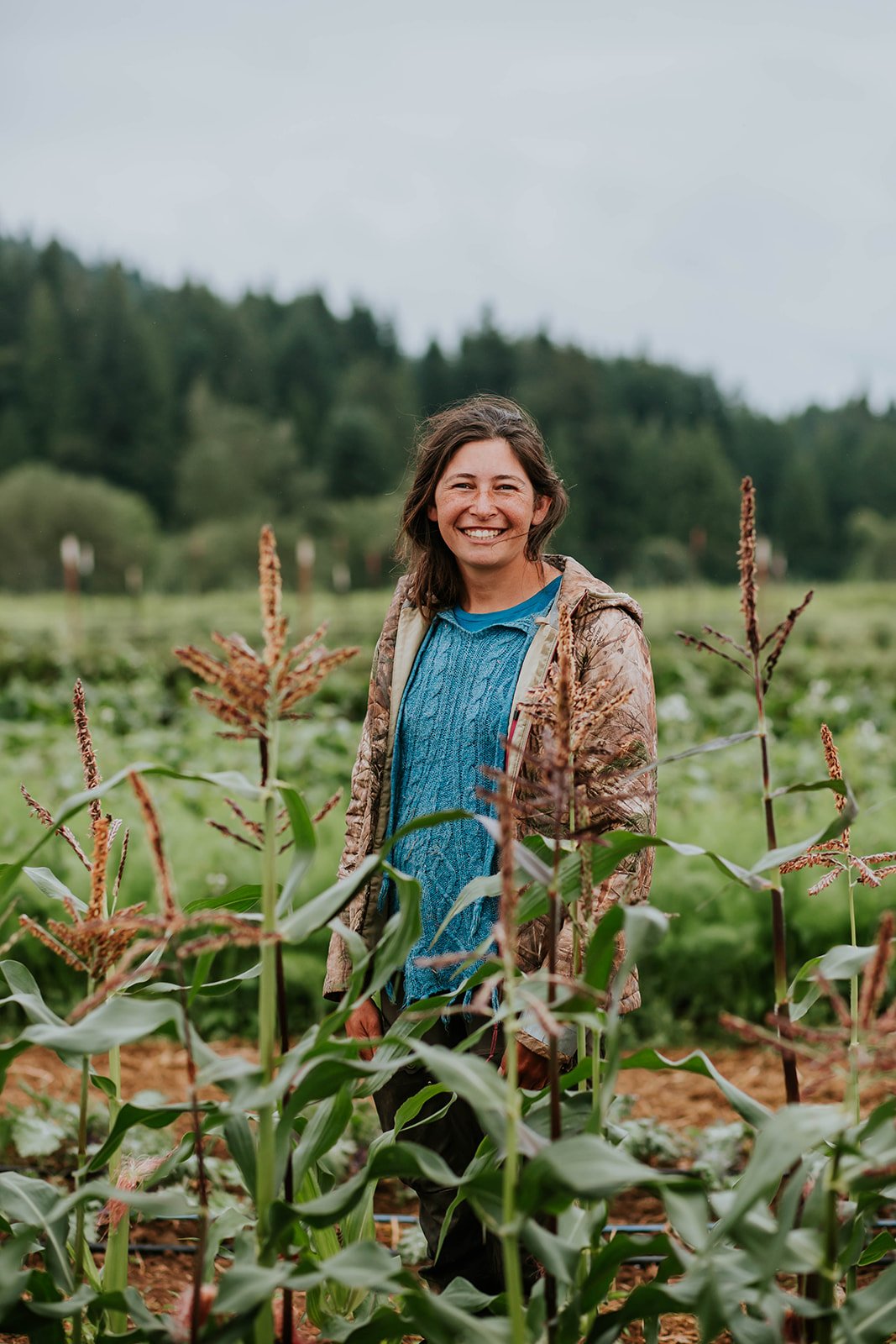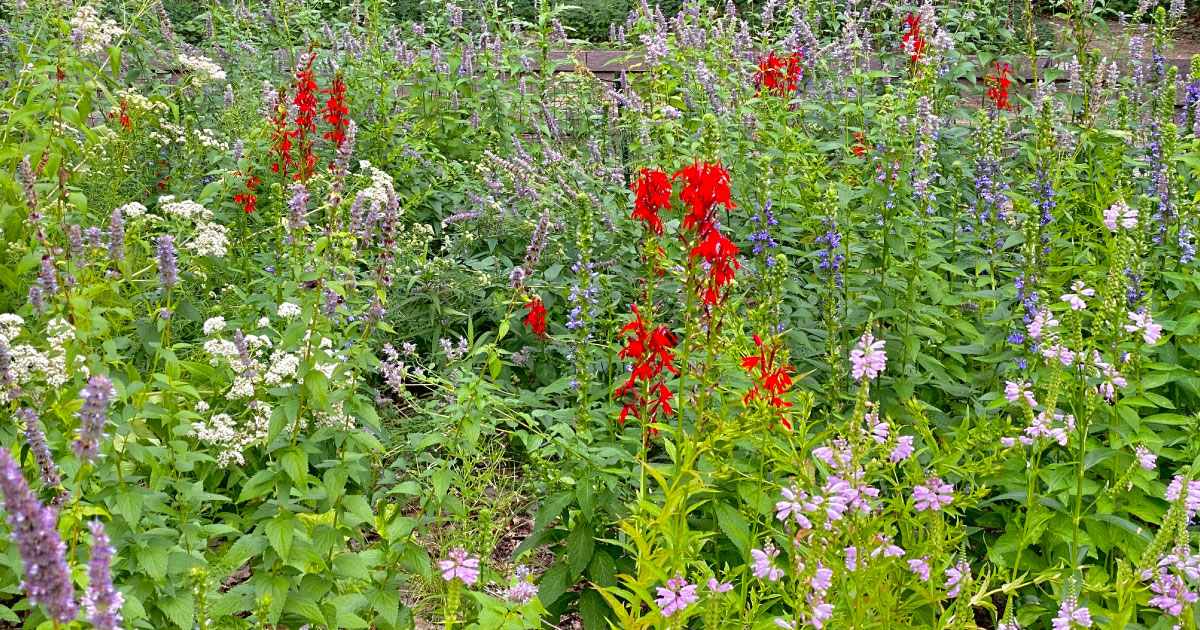
November is Native American Heritage Month, a time especially to highlight Indigenous peoples and their deep connections between land, culture and food. At x̌ast sq̓it, or Good Rain Farm, that connection is alive in every seed planted and every meal shared.
x̌ast sq̓it (hast squeit) means “good rain” in the language of the sngaytskstx (Sinixt), the Arrow Lakes Peoples. Farm founder Michelle Week, of Sinixt ancestry, explains her perspective: “I feel like a steward, not an owner, of the farm. The plants are the bosses; I’m just the caretaker. The focus of the farm is to contribute to our region’s food sources and uphold Native food sovereignty.”
Michelle grows tribal food varieties like Hopi blue corn, Seminole pumpkins, Cherokee tomatoes and lesser-known plants that have largely been pushed to the sidelines in mainstream agriculture, including fiddleheads, nettles and miner’s lettuce. She also raises animals on the farm, including Wyandotte chickens, Muscovy ducks and Champagne d’Argent rabbits.
“Food is one way that we can connect with our culture, each other, uphold our ancestry and our peoples,” Michelle shared. “And I hear things from people like, ‘I haven’t had this since my grandmother passed’ and ‘I didn’t know my tribe grew this food.’”
Good Rain Farm is uplifting its community in every way its leaders know how. The number of CSA members it serves has fluctuated and, now that it has permanent space, the CSA can expand exponentially. About 50% of all its food distributions are free. Michelle’s goal is to balance food access while generating sufficient revenue to take care of herself and her employees. Good Rain Farm accepts SNAP, payment plans and sliding scale pricing.
To even further expand access to Native foods, Good Rain Farm is helping people grow food for themselves through their “save our seeds” program. This initiative is focused on overcoming a significant challenge: Native seeds tend to be expensive, which restricts Native people from accessing those foods. To move the program forward, Michelle is actively testing and germinating a wide variety of seeds. “These are crops we don’t have in the grocery store, so this lowers the barrier and creates a reciprocal relationship with growing food,” she notes.
Before farming, Michelle worked as an outdoor school instructor with REI. She’s carried that love of teaching into her work through an apprenticeship program. “Having apprentices reinvigorates me every year,” she shared. “When they’re like ‘wow, this is amazing,’ it’s a nice reminder about how miraculous this is, and it adds a little sparkle to my day.”
November marked a year since Good Rain Farm found its permanent home in a Forever Farm. A “Forever Farm” means the land is permanently protected to make sure it can always be used for agriculture and educational or community benefits. After years of moving (including five locations in their first five years), it’s been a massive relief to have their own stable space.
OGC gave a Mission Fund grant to Good Rain Farm in 2025. They plan to use it to support payroll and work on projects on the new farmland.
For Michelle, “Farming feels like one of the direct ways I can feed community, connect with my culture, steward the environment and take care of the land. I grew up in a family that hunted, fished, camped, kayaked, canoed—we were outdoorsy PNW people. When I was 14, I asked for raised garden beds for my birthday and in middle and high school I was president of the 4H club. I have memories of my family raising, hunting and growing the food that we ate. Even though Good Rain Farm is on a totally different production level, I feel this is a challenge I’m capable of doing, an opportunity to improve food access for our community and a way to honor my ancestry.”









